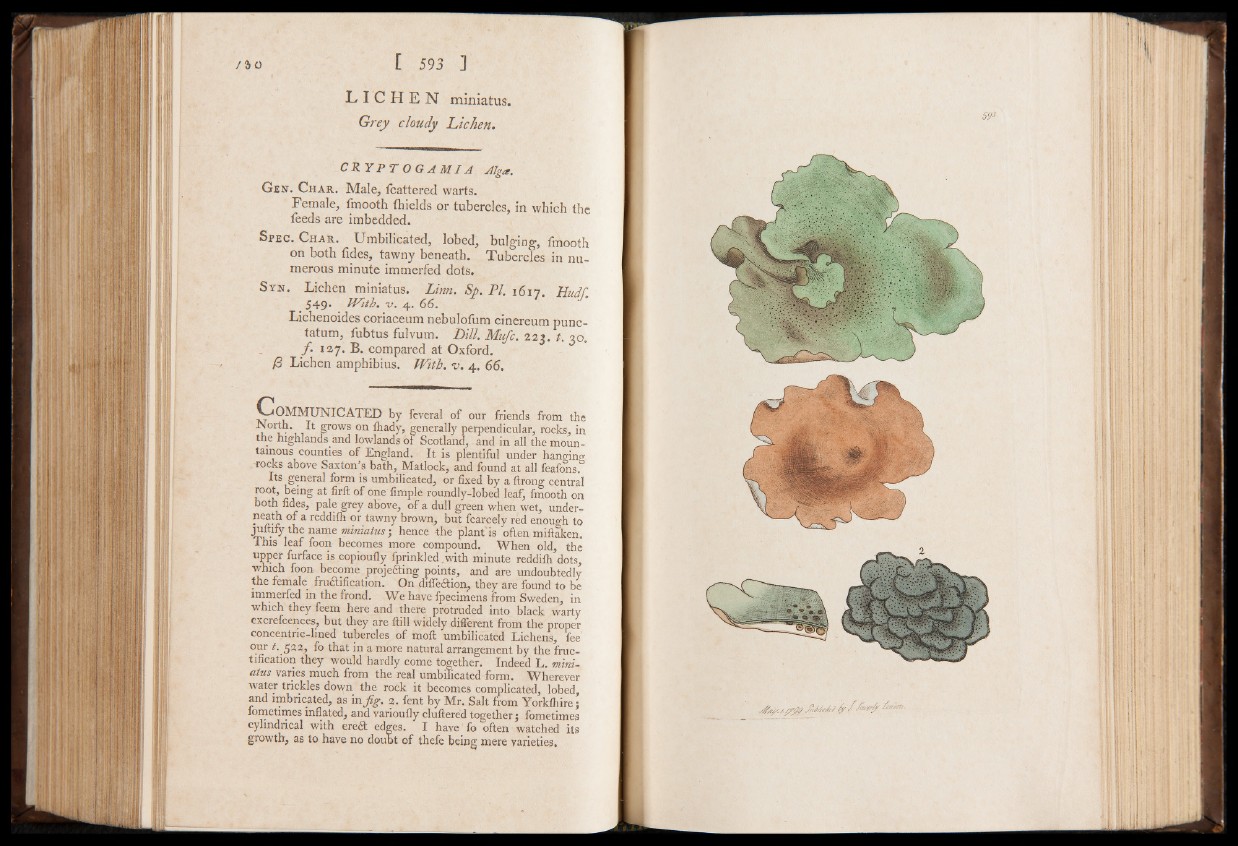
L I C H E N miniatus.
Grey cloudy Lichen.
C R Y P T OG A M I A Alga.
G en. C h a r . Male, fcattered warts.
Female, fmooth fhields or tubercles, in which the
feeds are imbedded.
Spe c . Ch a r . Umbilicated, lobed, bulging, fmooth
on both tides, tawny beneath. Tubercles in numerous
minute immerfed dots.
S yn . Lichen miniatus. Linn. Sp. PI. 1617. Hudf
549. With. v. 4. 66.
Lichenoides coriaceum nebulofum cinereum punc-
tatum, fubtus fulvum. Dill. Mufc. 223. t. 30.
ƒ. 127. B. compared at Oxford.
/3 Lichen amphibius. With. <v. 4. 66.
COMMUNICATED by feveral of our friends from the
North. It grows on thady, generally perpendicular, rocks, in
the highlands and lowlands of Scotland, and in all the mountainous
counties of England. It is plentiful under hanging
-rocks above Saxton’s bath, Matlock, and found at all feafons.
Its general form is umbilicated, or fixed by a ftrong central
root, being at firft of one Ample roundly-lobed leaf, fmooth on
both fides, pale grey above, of a dull green when wet, underneath
of a reddith or tawny brown, but fcarcely red enough to
juftify the name miniatus; hence the plant'is often miftaken.
This leaf foon becomes more compound. When old, the
upper furface is copioufly fprinkled with minute reddifh dots,
which foon become projecting points, and are undoubtedly
the female fructification. On diffe&ion, they are found to be
immerfed in the frond. We have fpecimens from Sweden, in
which they feem here and there protruded into black warty
excrefcences, but they are ftill widely different from the proper
concentric-lined tubercles of moft umbilicated Lichens, Tee'
our A 52 3 , fo that in a more natural arrangement by the fructification
they would hardly come together. Indeed L. miniatus
varies much from the real umbilicated form. Wherever
water trickles down the rock it becomes complicated, lobed,
and imbricated, as \nfig. 2. fent by Mr. Salt from Yorkfliire;
fometimes inflated, and varioufly cluftered together; fometimes
cylindrical with ereCt edges. I have fo often watched its
growth, as to have no doubt of thefe being mere varieties.